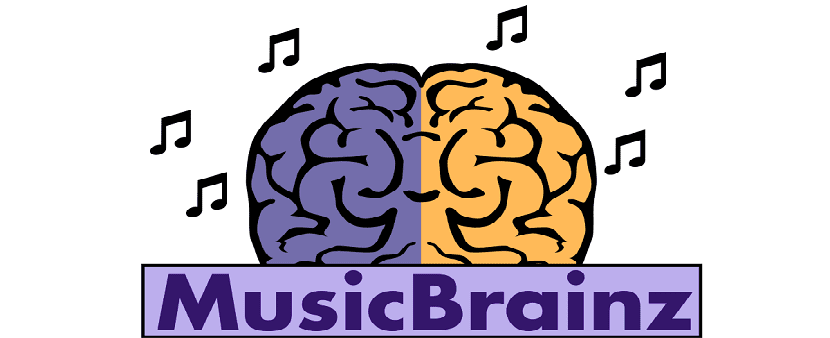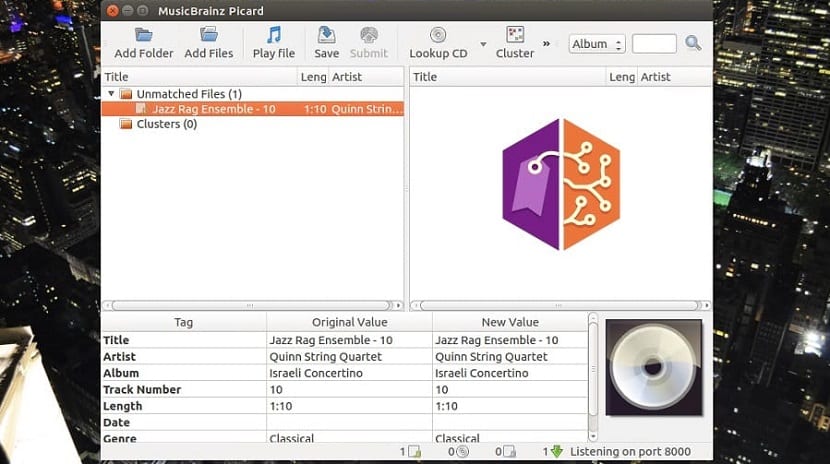
If even you are one of the people who has their music stored on your computer, portable hard drives, USB sticks or even on your smartphone, This application that we are going to talk about, I'm sure it can work for you.
Through a statement MusicBrainz Picard development team announced the release of new version of MusicBrainz Picard, because after 6 years from the previous main version, the application was updated to this new version.
In this new release of MusicBrainz Picard 2.0 various fixes were made to the application, as well as received many improvements and especially various corrections around its previous version.
About MusicBrainz Picard
For those people who do not know the MusicBrainz Picard application, I can tell you that this is an application free and open source, which is intended for identifying, labeling, and organizing digital audio records. It was developed by the MetaBrainz Foundation, a non-profit company that also operates the MusicBrainz database.
MusicBrainz Picard identifies audio files and compact discs by comparing their metadata or acoustic fingerprint (AcoustID) with the records in the database.
When MusicBrainz Picard identifies an audio file, you can add new information to it, such as artist, album title, record company, and release date.
In some cases, you can also add more detailed information, such as lists of performers and their instruments.
The application can also select the audio files based on the file names.
The source of this information is the MusicBrainz database, which is maintained by volunteers. The more information the database may have about a record, Picard can better embed users' audio files.
What's more, the functionality of MusicBrainz Picard can be extended through scripts and plugins.
New version of MusicBrainz Picard 2.0
As mentioned, the application was updated a couple of days ago to its new version 2.0 after six years without any update.

Between the main novelties included in this new release we can highlight that MusicBrainz Picard 2.0 was ported to Python 3 (requires at least version 3.5 to run on the system) and PyQt5 (> = 5,7).
The announcement statement mentions that the improvements can be seen, because with the migration to Python the program improved.
»Picard should look better and generally perform even better«.
Of the other changes to MusicBrainz Picard 2.0 include:
- Support for Retina and HiDPI displays
- Support for. tagged dsf and .dff files
- Added keyboard shortcut for deleting scripts from Options> Scripting page
- Distinguish between non-clustered UI
- Improvements to the user interface for CD search
- Option to ignore tracks with length differences
- Added a command line option to restore non-persistent UI sizes or positions
- Fix images by dragging from Google Chrome
- Fixed saving tags for files on MTP devices (so you should now be able to use Picard to tag music files directly on your Android device)
- Fixed saving tags for files on NAS devices
- Picard will no longer automatically overwrite the cover
How to install MusicBrainz Picard 2.0 on Linux?
If you want to install this application on your system, we can do it using the support of Flatpak technology, so it is necessary to have the support to be able to install packages of this type on the system.
Now only We must open a terminal in the system and in it we are going to type the following:
flatpak remote-add --if-not-exists flathub https://flathub.org/repo/flathub.flatpakrepo
flatpak install flathub org.musicbrainz.Picard
And ready with it, the application is installed on your system, ready to be used.
To run the application, just look for the shortcut in your application menu or from the terminal with the command:
flatpak run org.musicbrainz.Picard